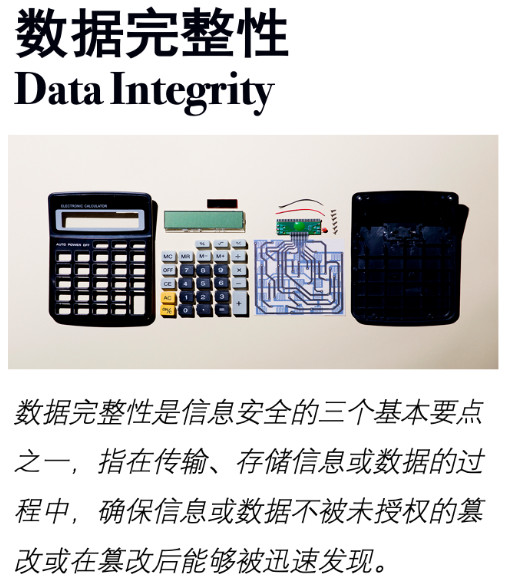
「释义」
数据完整性是信息安全的三个基本要点之一,指在传输、存储信息或数据的过程中,确保信息或数据不被未授权的篡改或在篡改后能够被迅速发现。
通常使用数字签名、散列函数等手段保证数据完整性。
「应用场景」
此刻,数据完整性就是我们知道自己需要的好东西——现在采取行动好不算太晚。《投资公司法》构想的审计委员会监督的是人员和流程,而不是技术和数据(现代计算机直到1955年才被用于企业的会计职能部门)。今天,数据完整性是先进制造、网络安全和灵活运营的基础。就像20世纪30年代的财务报告一样,数据是盈利能力的核心基础,但缺乏一个诚实的经纪人。结果如何?对信息的不对称控制扭曲了企业内及企业外的竞争决策。希望保持领先地位的公司可以——并且应该——主动成立一个数据完整性委员会。
Right now, data integrity is a good that we know we need — and it’s not too late for action. The audit committee envisioned by the Investment Company Act would oversee people and process, not technology and data (the modern computer was not used for company accounting functions until 1955). Today, data integrity is foundational to advanced manufacturing, cybersecurity, and operational agility. Like financial reporting in the 1930s, data forms a central basis for profitability but lacks an honest broker. The result? An asymmetric control of information that distorts competitive decision-making both within and outside companies. Companies that want to stay ahead of the curve can — and should — proactively create a Data Integrity Committee.
以上文字选自《哈佛商业评论》中文版2020年12月刊《董事会应增设数据完整性委员会》
布拉德·基韦尔(Brad Keywell)丨文
马冰仑 丨编辑




